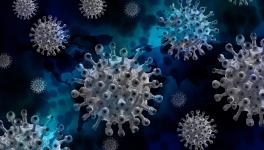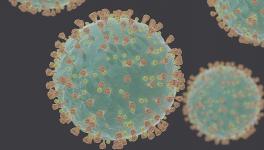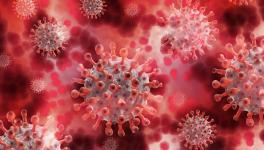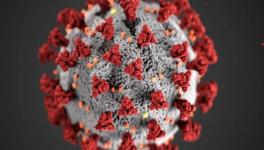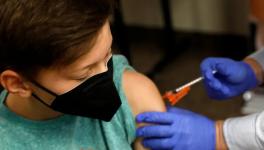Omicron: Precautions, not Panic, are the Need of the Hour
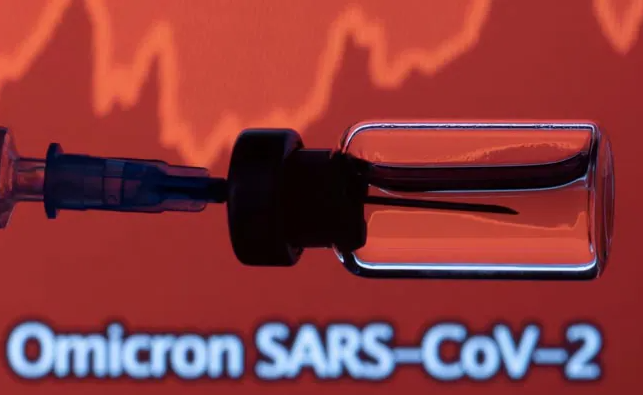
Image Courtesy: NDTV
Omicron, the new variant of the coronavirus, has emerged as the latest headache for the world, with concerns associated with the variant flurrying from every corner, ranging from its transmissibility to, ability to escape the immune response and effectiveness against the vaccine. There has been some prima facie information regarding the variant available in some parts of the world, but affirmative and conclusive evidence about the concerns are still awaiting.
As per the World Health Organisation's (WHO) latest update on Omicron, it is not yet clear whether the variant can transmit rapidly compared to other past variants of concern, including the Delta variant. In the same way, the update doesn't come to a clear conclusion regarding the possibility of more severe disease caused by the new variant.
South Africa, where the variant was reportedly detected first, is witnessing an increased rate of hospitalisation. However, it is yet to be determined conclusively whether this increased hospitalisation is due to increasing overall numbers of patients or the Omicron variant, the WHO said. Similarly, the efficacy of the available vaccines against this variant and cases of reinfection is also being researched by technical experts.
Prof. Satyajit Rath, an eminent scientist in the sphere of immunology, also accepted in his comments, saying, "The first thing that all of us need to keep in mind is that there is a great deal that we don't know. So, any definitive claims, conclusions and expectations are committals." However, in the same line, Rath has argued that precautions are a wise policy, as the pandemic has taught us over the last two years.
The Omicron variant has some unusual attributes in it. "The variant seems to have accumulated a large number of variations (mutations), and many of these are in the spike region," Rath said. The mutations are random changes in the DNA that occur in any organism. In the case of RNA viruses (the virus whose genetic material is RNA rather than DNA), the mutation rate is higher. However, not all the changes can bear some meaning, and mostly they are random variations. But, some of the mutations can render a virus (and, for that matter, any organism) with certain properties like more transmissibility, immune escape capacity, vaccine evasion etc. In that case, the variant bearing the meaningful mutations can become a variant of interest.
Many of the mutations in the Omicron variant are located in the spike protein, used by the coronavirus to stick to a human cell and for further penetrating the cell. Notably, the available vaccines mainly target the spike protein to keep ourselves safe from the attack of the virus.
"So, when the mutations are in the target of the vaccines, then there is at least potential chance that the particular variant will evade the vaccine generated immune response. For example, the Delta variant had over a dozen changes (mutations) in the spike protein, but this new variant has more than twice as many," Rath explained.
Here is the point that we fall into the binary between carelessness and panic, Rath said. The question becomes whether the vaccine will work or it will not. "However, we need to remember that the vaccine working is not a yes or no phenomenon. The important point at this juncture, which many scientists have pointed out that the vaccines will work, especially against severe illness or death, but may not work quite as well."
"As for the immune escape, that is not an all or none situation. Since there are quite a few changes in the spike protein of the omicron variant, it is possible, though not confirmed yet, that there will be some reduction in the effectiveness of current vaccines. But that does not mean that they will be of no use at all. They will remain quite useful even at lower potency," Rath said.
However, there has been a sudden spurt of cases in the region where the variant was detected first, and Omicron causes a significant proportion. Rath said that there is a rough estimation of the R-value of the variant, which seems to be significantly higher. So, there is an indication that the variant has the property of more rapid transmission, Rath told.
Reportedly, the Omicron variant has spread to over 20 countries, and whether it is in circulation in India or not cannot be said with confirmation.
"Given India's still small scale of virus sample sequencing efforts, there is no way of saying with certainty that the omicron variant is not yet present in the country. All that can be said is that it has not yet been detected," Rath commented.
Given all the possibilities, the moment should not lead to pressing the panic button. Still, the existing precautions like masking, physical distancing, avoiding crowds and un-ventilated spaces are needed to bolster, accompanied by increased monitoring and sequencing of the samples.
Get the latest reports & analysis with people's perspective on Protests, movements & deep analytical videos, discussions of the current affairs in your Telegram app. Subscribe to NewsClick's Telegram channel & get Real-Time updates on stories, as they get published on our website.









